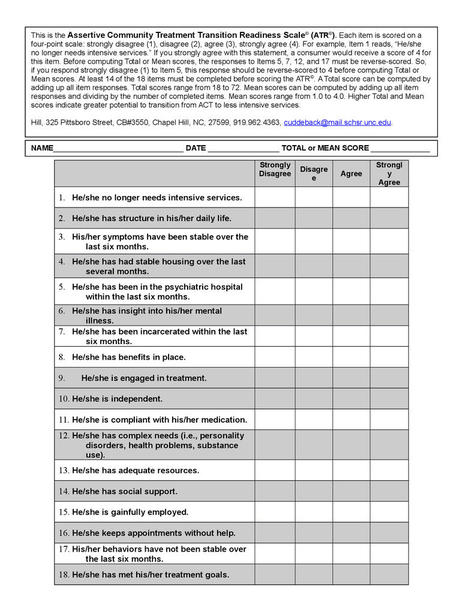As noted by most people who have used the ATR, the 18 questions can be quickly completed and are clear. It is important that each question be carefully considered and that you keep in mind that the ATR assesses the client for transition at that point in time, it does not predict future capacity of transition.

Thus for example if a person's medications (question 11) were being managed well by them via their living situation such as family support or living in a domiciliary hostel, you might well "fully" agree. On the other hand if the person is only maintaining use of medication due to ACT daily visits, even if that part of care is being managed, you might disagree --"strongly" or "mildly" to indicate the person's progression.
Key to completing the ATR is that you are thinking about the person and their environment/supports without ACT, (for example question 14). Thus if the only social supports the person has is ACTT, you might indicate disagree, even if the person is doing well within those supports with ACTT. A disagree in this context would indicate at least some ability of the person to engage with social support. A strongly disagree would indicate the person is refusing all social support activities of ACTT.

